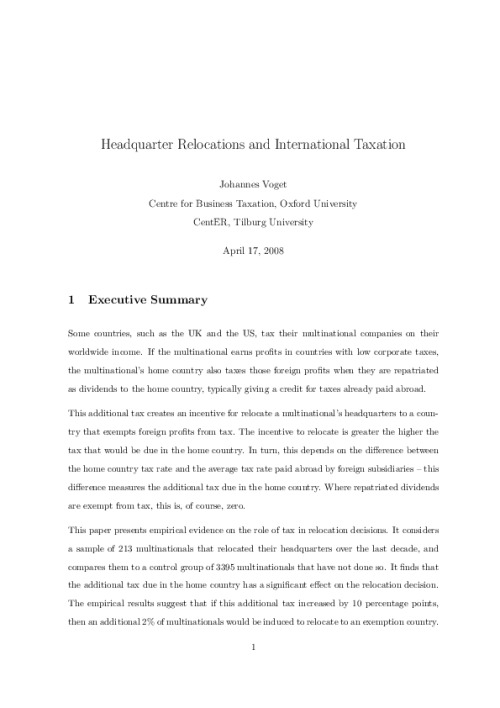<p><p>Some countries, such as the UK and the US, tax their multinational companies on their worldwide income. If the multinational earns profits in countries with low corporate taxes, the multinational's home country also taxes those foreign profits when they are repatriated as dividends to the home country, typically giving a credit for taxes already paid abroad. </p><p></p><p>This additional tax creates an incentive for relocate a multinational's headquarters to a country that exempts foreign profits from tax. The incentive to relocate is greater the higher the tax that would be due in the home country. In turn, this depends on the difference between the home country tax rate and the average tax rate aid abroad by foreign subsidiaries - this difference measures the additional tax due in the home country. Where repatriated dividends are exempt from tax, this is, of course, zero. </p><p></p><p>This paper presents empirical evidence on the role of tax in relocation decisions. It considers a sample of 213 multinationals that relocated their headquarters over the last decade, and compares them to a control group of 3395 multinationals that have not done so. It finds that the additional tax due in the home country has a significant effect on the relocation decision. </p><p></p><p>The empirical results suggest that if this additional tax increased by 10 percentage points, then an additional 2% of multinationals would be induced to relocate to an exemption country.</p></p>










